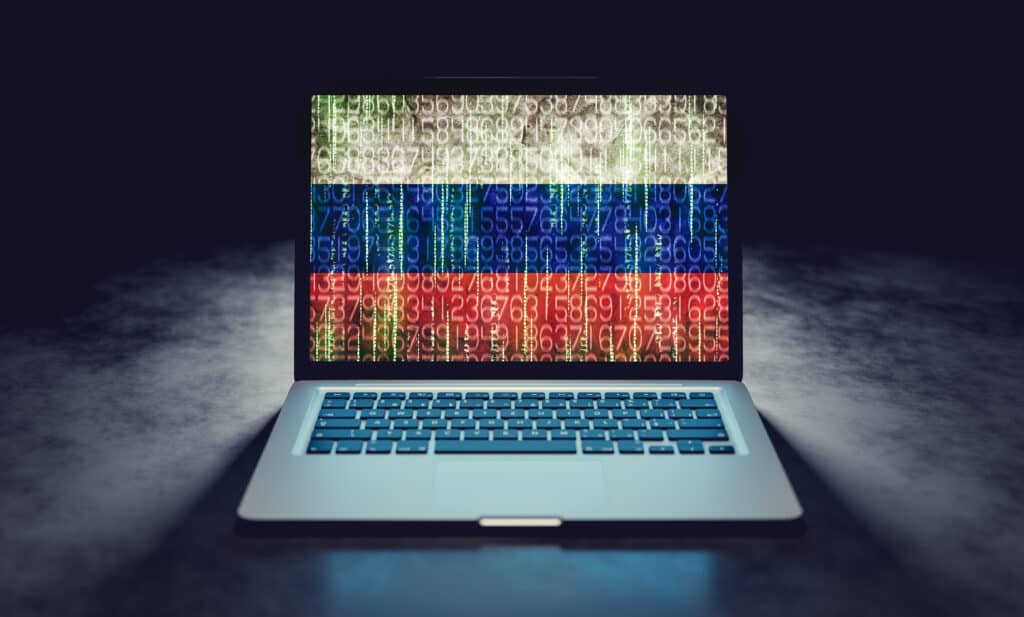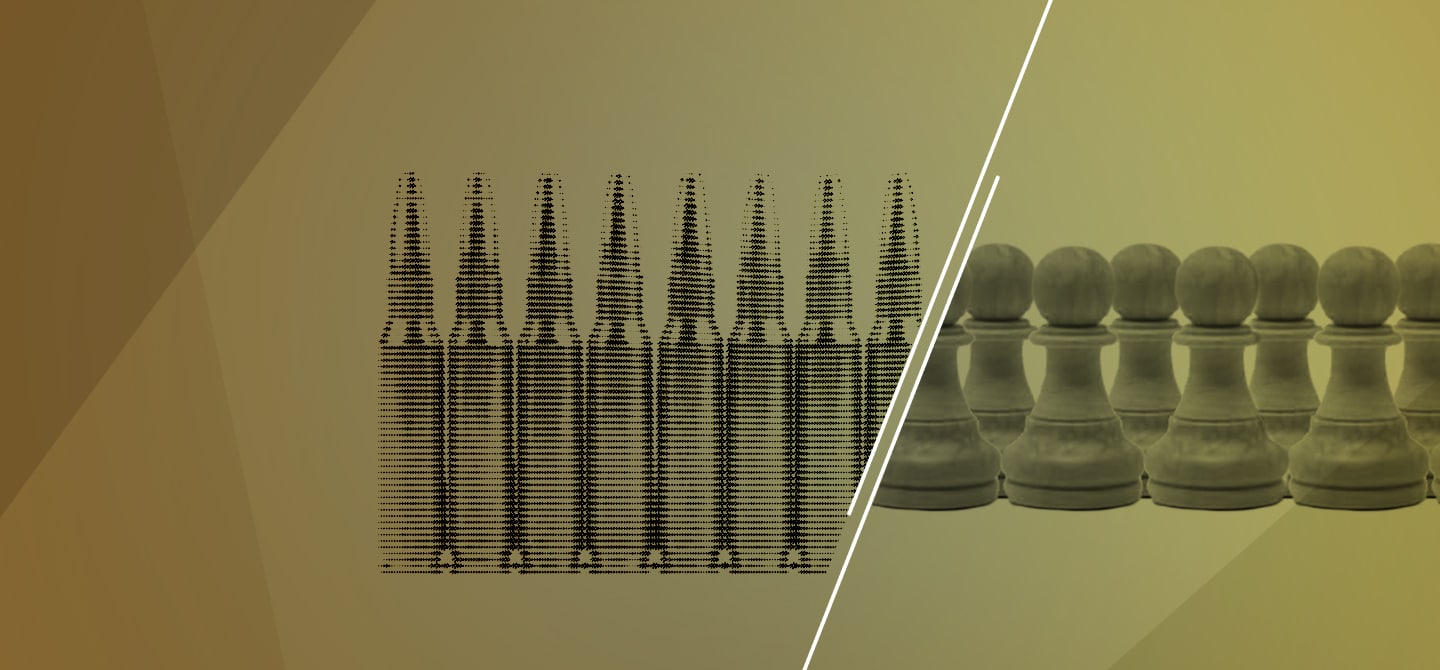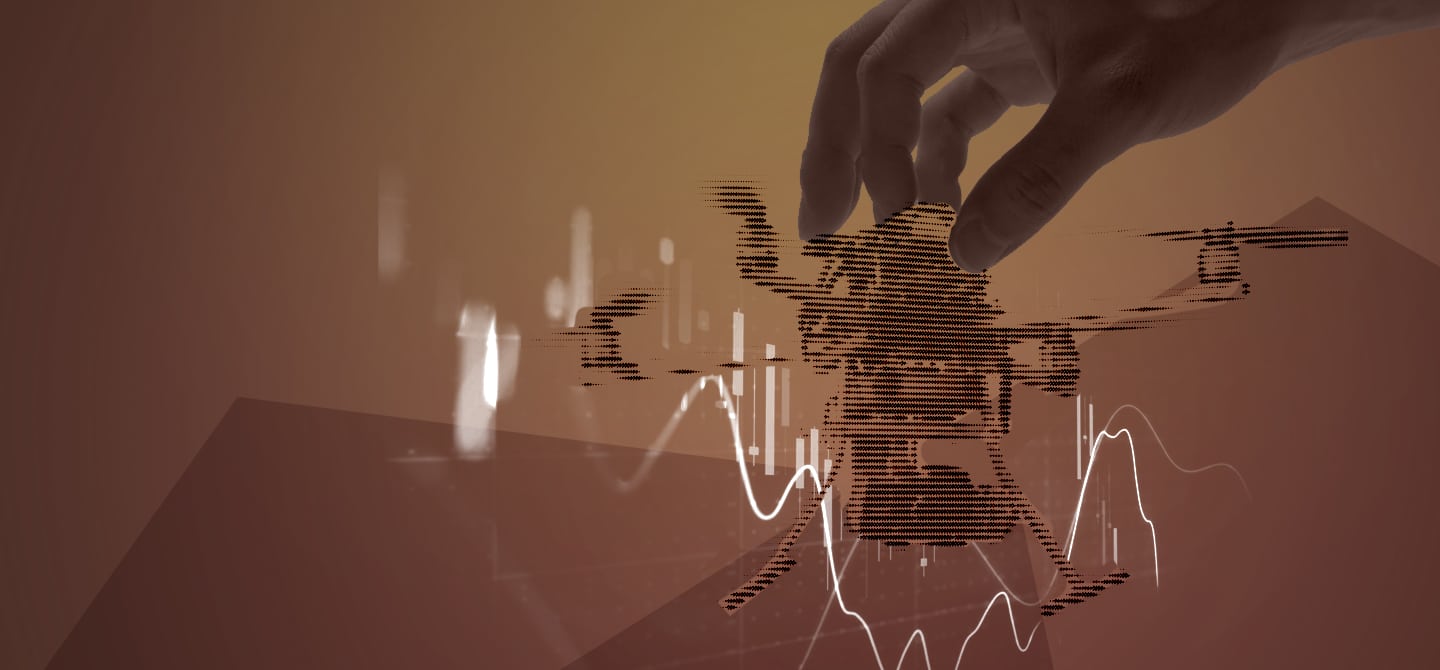Since the start of the war in Ukraine, attention to disinformation, one of the battlegrounds of hybrid warfare, has increased. Information is key in wartime, especially when the conflict is so close to home. Russia has understood that a democratic country cannot afford to help Ukraine in the long term if its population is opposed to it or suffers too many repercussions (such as higher energy prices). The war is therefore also taking place on the information front. The challenge for the Kremlin is to succeed in spreading its propaganda in the Western media and on social networks.
This war was first played out on the virtual battleground of disinformation.
Carole Grimaud, founder of the Centre for Research on Russia and Eastern Europe (CREER), is currently working on the influence that Russian propaganda can have on French citizens, particularly students.
The aim is not to convince, but to raise doubts
From the first moment the Russian army set foot in Ukraine, a multitude of examples of disinformation emerged, starting with Vladimir Putin’s justification for this war1. The Kiev regime is said to be neo-Nazi, and to have been perpetrating genocide on the Russian-speaking population of Donbass since the beginning of the war in February 2014. However, recent events, such as the discovery of the mass grave in Izum – a town in the Kharkiv region liberated from Russian occupation by Ukrainian forces, in which a mass grave containing at least 450 bodies was discovered – have brought to light images that call into question the Kremlin’s version, which is hard to dispute.
“The Ukrainian government expects other discoveries of the same type in other cities under occupation,” says Carole Grimaud, “because the city of Izum is not the first. Mariupol and Butcha are examples, and satellite images are available, but Moscow still denies responsibility.” All this leads one to imagine that these are not exceptions, especially since they are real evidence of war crimes. “Many civilian bodies show signs of torture, and others of starvation,” she says. “This is considered a war crime. The army that occupies a territory must guarantee the right to life of the civilians living in that territory, something that the Russian army is clearly not concerned about.”

The Kremlin’s disinformation about the Boutcha massacre may “seem absurd”. According to the Moscow regime, the images of the hundreds of civilian victims are nothing more than a set up to put the blame on Russia2. For Carole Grimaud, this statement is consistent with the Russian strategy. “The disinformation used in the case of Boutcha may have been effective with the Russian population, but abroad, the objective was rather to sow doubt. It worked with certain French personalities, who took up the Kremlin’s language3.”
However, Russia is not the only one to propagate this doubt, some French people involuntarily participate in it, and the researcher notes: “In France, mainstream information tends to support one viewpoint, as if there was only one side of the story. Everyone must agree, there is no longer any real debate. This can push people to seek different, less mainstream information.” The risk is then that they will come across information fabricated by the Russian counter-discourse. “We know that false information, or information that provides a different perspective, even if it is later disproved, leaves its mark on the memory of those who have been exposed to it,” she concludes.
“The information broadcast by the general media in France is the information of the Ukrainian government. However, it is a government at war that has been applying martial law since February,” she says. Westerners do not have soldiers on the ground to verify the information given, but civilians, NGOs and the various humanitarian aid workers on the ground bear witness to what they observe. Their feedback is more impartial and most of the time corroborates Kiev’s version.
Ukrainian propaganda is also a factor
The Ukrainian government is not exempt from all blame in terms of disinformation. Several examples show this, as Carole Grimaud explains: “A worrying event concerns an Amnesty International report, in which the NGO accused Ukraine of endangering its own civilians. In response to this accusation, the Ukrainian government insinuated that the organisation was repeating Moscow’s propaganda. In the end, this communication strategy made it possible to keep the report somewhat quiet. This is since Ukraine, in order to survive this invasion, has to keep the public opinion of the countries that are helping it on its side. If French public opinion changes sides, for example, there is no guarantee that the government in place will continue to finance the war, and for the Ukrainians, this is vital.”
Arnaud Mercier, professor of information and communication sciences, considers that the war of disinformation between these two camps began long before the physical confrontations taking place today. It has only become more pronounced since then: “Both sides have been trying for a long time to present the facts as it suits them. They also avoid talking about things that might interfere with their own narrative. The Ukrainians, for example, publish the supposed number of Russian soldiers killed every day, without ever mentioning their own. Everything is disinformation warfare, even the decision to remain silent. This does not mean that the mobilising and manipulative rhetoric is equivalent between the two sides, especially as the two belligerents have chosen very different communication strategies.”
If disinformation is undeniably a weapon of war, the strategies put in place and the reasons for their use differ sharply in this conflict: one uses it to justify the invasion of a sovereign state, the other to try to preserve this sovereignty.
Spreading misinformation through our communication channels
It is therefore important for Russia, to create this kind of doubt, to spread its discourse through our communication channels. A recent report by the NGO EU Disinfo Lab highlighted one of their ways of doing this4. The NGO identified fake sites bearing the names of real media. Thus, 20 minutes witnessed the birth of its usurper – 20minuts.com instead of 20minutes.fr –, through which articles consistent with the Kremlin’s discourse were disseminated.
There is thus a direct desire to influence mainstream news sources – the British newspaper The Guardian, the German Der Spiegel, and more than fifteen others are also victims of this deception. These pro-Russian articles are then disseminated en masseon social networks, through fake accounts.
The NGO EU Disinfo Lab has identified fake sites bearing the names of real media outlets.
Arnaud Mercier, professor of information and communication sciences at the University of Paris Panthéon-Assas, believes that the Kremlin’s propaganda strategy is that of an “arsonist”. He says that “during the Cold War, the strategy was to belittle the adversary and enhance its own image. Today, Russia identifies the points of tension in our societies and seeks to exacerbate them by throwing oil on the fire, hoping to divide our societies.”
This strategy has been seen in the past when Russia has tried to influence the electoral process in Western countries. And in each of these events, the most effective medium for spreading its disinformation has been social networks. “The rise of influence strategies on social networks goes back to at least 2016, with the election of Donald Trump and Brexit,” he says. “But it had already happened in 2014 during the parliamentary elections in Germany.”
“A large number of fake accounts then appear on the networks. These are antinomian accounts that spread messages to radicalise both sides,” says the professor. “This is done to destabilise voters. These messages are then taken up and spread in turn by real users. There are people who, faced with information that is not very credible, are fooled and play the useful idiot by relaying it,” he adds, “and others who are already convinced.”
However, it is difficult to have an exact estimate of the number of false accounts on the networks. According to Arnaud Mercier, the example of Elon Musk’s attempt to buy Twitter is proof of this5: “The billionaire’s condition for buying the platform was to have an estimate of the number of bots [fake accounts] present. Twitter was unable to meet this demand, so the takeover deal was terminated. However, we do know with some certainty that there are at least a hundred thousand accounts.” This certainty comes from the estimate made by Twitter itself at the time of the potential takeover: fake accounts would represent at least 5% of active users, which Elon Musk disputes, estimating that the figure would be closer to 20%6. Of course, not all these fake accounts are Russian.
The mass dissemination of conflicting information is also a source of doubt for the recipient of the information. “They allow different interpretations to circulate in a halo of uncertainty. There is a desire to surround a fact with multiple interpretative possibilities,” says the researcher, “to create a certain amount of doubt. Charles Pasqua had already described this tactic: when there is a story, you must create a story within a story, and then another controversy until people don’t understand anything anymore. Fake accounts and fake news aim to make people lose track of events.”
The image of the West is being targeted
Ultimately, with its fake accounts – and the thousands of messages they disseminate – Russia manages to instil its discourse in Western public opinion and has done so for many years. This strategy has become more pronounced since the start of the Ukrainian conflict. “Vladimir Putin now talks about the damage that European sanctions are doing to the economies of the old continent,” says Carole Grimaud. He maintains that the primary victims are the Europeans, and that winter will be hard on them. All this is done in the hope that public opinion will turn in his favour. Doubt is a sneaky weapon of war.
Although these practices are present in Western countries, the main targets are other countries around the world.
Non-Western countries are also targeted. “These false accounts do more damage in societies where anti-Western sentiment is already present,” notes Arnaud Mercier. In Asia, Latin America, and more recently in Africa, the Kremlin’s discourse is much more easily accepted. The example of the Sahel is, in this respect, quite convincing, especially as it directly concerns France. First arriving in the Central African Republic, Russia managed to establish itself in the region. Under the guise of fighting terrorism, disinformation attempts to discredit the French armed forces – present there during Operation Barkhane7.
“The strategy is, once again, to inflame a situation that is already tense due to a conflict,” he adds, “in the case of Operation Barkhane, multiple accusations have been made. From paedophile soldiers to the discovery of mass graves – for which France is the prime suspect – to questioning the objective of this operation.”
A recent case of this conflict of influence between France and Russia is the discovery of the Gossi mass grave in Mali on 21stApril 2022. A few days after the handover of the French military base in Gossi to Malian forces, a Twitter account posing as a Malian soldier announced the discovery of a mass grave not far from the base. “This is what the French left behind,” he said, sharing a video of the mass grave. Only, France had filmed the whole scene with a drone that remained on site. The video showed caucasian soldiers – not Malians – with Chinese equipment, thus associated with Russian forces, burying the bodies. Accusations were made that France was responsible for this massacre, even though it was the mercenaries of the Wagner group, who had arrived to take over from Barkhane, who had committed this act.
However, for a local, access to information is already limited in favour of Russian discourse. Since the Malian military junta has decided to censor the French media France 24 and RFI8, a Malian now gets his or her information from Russian state media, such as Rt News or Sputnik9.





















